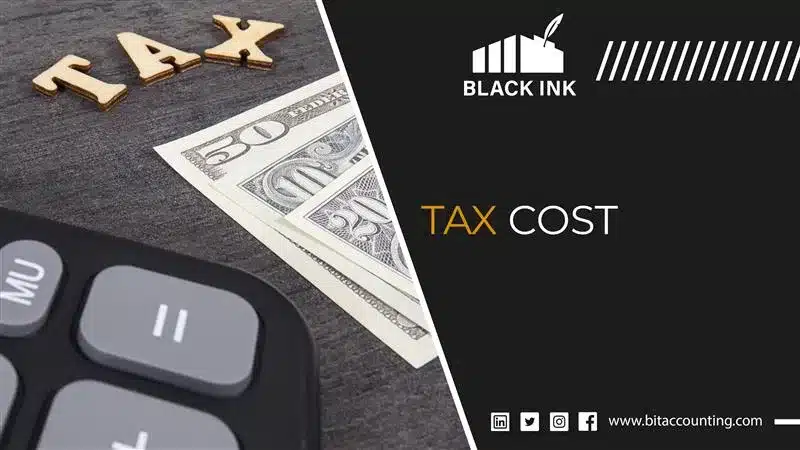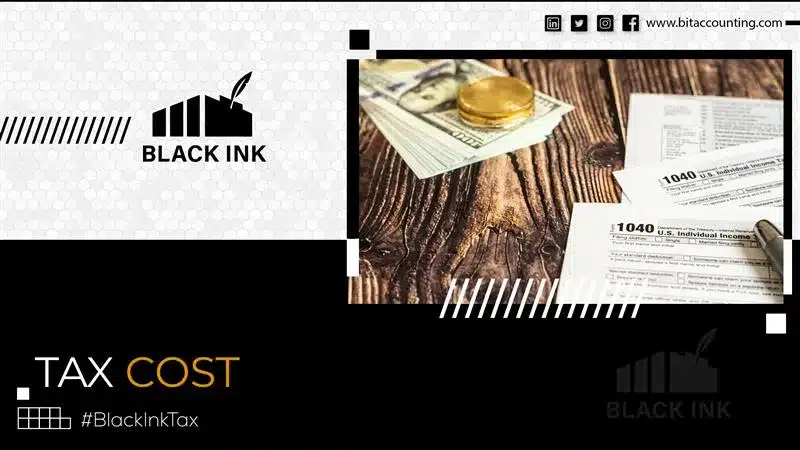
Table of Contents
Which Tax Cost Is Normally Associated With Death?
People often say, two things in life are certain, death and taxes, but what if they both happen at the same time? When someone dies, the tax world doesn’t just quietly lower its head and offer condolences. No sir — it shows up with a clipboard and a calculator.
So, which tax cost is normally associated with death? The answer isn’t just one — there are several, lurking like accountants at a wake: estate tax, inheritance tax, final income tax, and generation-skipping transfer tax.
In this blog, we’ll walk you through the types of death-related taxes, who pays them, how much they cost in 2025, and how to (legally!) minimize or avoid them. Yes, even in death, there’s strategy.
What Are Death Taxes?
Death taxes is a catch-all term that refers to taxes triggered by a person’s death. These can include:
- Estate tax – charged on the deceased’s total estate before it’s distributed.
- Inheritance tax – charged to the recipients of the estate, depending on the state and relationship.
- Final income tax – the deceased’s last personal income tax filing.
- Generation-Skipping Transfer (GST) tax – a federal tax when assets skip a generation (e.g., from grandparent to grandchild).
Each one has its own quirks, exemptions, and planning strategies — and most people don’t know they even exist until it’s too late.
Which Tax Cost Is Normally Associated With Death?
Among the options, the estate tax is the most commonly associated tax when someone dies. However, in some states, inheritance tax also plays a big role — and in all cases, final income tax liability is unavoidable.
Estate Tax
Estate tax is a federal (and sometimes state-level) tax imposed on the total value of a deceased person’s assets before they’re passed to heirs.
What Can Be Taxed in an Estate?
The IRS counts just about everything with a dollar sign and we are not saying this metaphorically:
- Real estate (homes, land, rental property)
- Stocks and bonds
- Cash & savings
- Life insurance but only if the deceased held any sort of ownership
- Retirement accounts like 401(k) or IRAs
- Your Vehicles, furniture, jewelry, even clothing (The dollar sign thing was not a joke)
Yup — if it can be appraised, it can be taxed.
How Does the Estate Tax Work?
- The gross estate is calculated: everything the person owned at the time of death.
- From this, deductions are subtracted — like debts, funeral expenses, and charitable donations.
- The result is the taxable estate.
- If that amount is above the exemption threshold, it’s taxed (up to 40%).
How Much Is Estate Tax in 2025?
In 2025, the federal estate tax exemption is set to $5.49 million per individual (adjusted for inflation). Above that, the estate can be taxed at up to 40%.
he exemption used to be $12.92 million in 2023, but that was temporary — and it’s rolling back.
For married couples using portability, the combined exemption can be about $10.98 million.
Which States Have Estate Tax?
As of 2025, these states impose their own estate taxes:
- Connecticut
- District of Columbia
- Hawaii
- Illinois
- Maine
- Maryland
- Massachusetts
- Minnesota
- New York
- Oregon
- Rhode Island
- Vermont
- Washington
Each state sets its own exemption limit, often much lower than the federal one. Some kick in at just $1 million.
When Are Estate Taxes Due?
The IRS expects its cut pretty quickly:
- 9 months after the date of death
- You can request a 6-month extension, but interest still accrues
Tax Form: IRS Form 706 (United States Estate Tax Return)
Death Tax Thresholds & Legal Buffers
Here are the thresholds of death tax:
Unified Tax Credit
A lifetime credit that covers estate and gift taxes combined. In 2025, it’s aligned with the $5.49M exemption.
Unlimited Marital Deduction
Transfers between spouses are completely tax-free, no matter how large. This helps delay taxes until both partners pass.
Inheritance Tax
Unlike estate tax, inheritance tax is paid by the heir, not the estate. It’s only levied by a few states — and the rates & exemptions depend on your relationship to the deceased.

How Does Inheritance Tax Work?
Let’s say you inherit $500,000 in Pennsylvania from your late aunt.
- If you’re her niece, PA charges 15% inheritance tax
- That’s $75,000, directly payable to the state
- Spouses? 0% in most states
- Children? Usually lower rates
Which States Levy Inheritance Tax?
Only six U.S. states charge it:
- Iowa
- Kentucky
- Maryland (has both estate and inheritance taxes)
- Nebraska
- New Jersey
- Pennsylvania
If the deceased lived or owned property in one of these states, or if you do — you might be on the hook.
Final Income Liability
Death doesn’t excuse anyone from filing their taxes. The deceased’s final income tax return must be filed for the year of death, just as if they were alive.
Handled via Form 1040, by a surviving spouse, executor, or court-appointed representative.
Generation-Skipping Transfer (GST) Tax
Let’s say Grandpa skips his kids and gives $2M to his granddaughter.
The IRS? Furious. This is called a generation-skipping transfer — and it’s subject to a separate 40% GST tax beyond estate taxes, unless it falls under the GST exemption.
Gift Tax vs. Estate Tax
These two are connected by the lifetime unified credit.
- Gift tax applies to lifetime transfers (over $18,000 per person/year in 2025).
- Estate tax applies to posthumous transfers.
Give too much while alive, and your estate exemption shrinks.
5 Legal Ways to Reduce Estate Taxes
Let’s lighten the mood with some IRS-approved tax sorcery:
1. Annual Gift Exclusions
You can give up to $18,000 per person per year (in 2025) without triggering gift tax or using your lifetime exemption.
2. Leave Money to Charity
Charitable donations are fully deductible from the taxable estate. Give with purpose — and reduce your tax bill.
3. Set Up Irrevocable Trusts
Control your legacy and remove assets from your estate:
- Spousal Lifetime Access Trust (SLAT) – Benefits your spouse but keeps it out of your estate
- Credit Shelter Trust (CST) – Uses your exemption without double-taxing
- Intentionally Defective Irrevocable Trust (IDIT) – Complex but tax-efficient
4. Use an ILIT (Irrevocable Life Insurance Trust)
Proceeds from life insurance normally get taxed if you owned the policy. An ILIT owns the policy instead — and keeps those millions outside your estate.
5. Pay for Medical/Education Expenses Directly
Pay someone’s tuition or hospital bills directly (not through them) — and avoid gift tax.
What If I Can’t Avoid the Inheritance Tax?
- Plan ahead: Consult with estate planners early
- Use state-specific exemptions: Every state has loopholes
- Take insurance: Some use second-to-die life insurance to cover anticipated tax bills
- Request payment plans: The IRS allows estates to pay over time (Form 706-A)
Bottom Line
So, which tax cost is normally associated with death? Usually, it’s the estate tax, closely followed by inheritance tax and the final income return. But with some smart planning — trusts, gifts, and strategic giving — you can reduce the tax bite and protect your legacy.
If you’re wondering how to keep more of your hard-earned legacy intact — talk to BitAccounting’s estate tax strategists today. We’re the ones the living call… before they go.
FAQ
Are estate taxes and inheritance taxes the same?
No — estate tax is paid by the estate, inheritance tax by the heir.Can I give everything away before I die?
You can, but watch the gift tax and five-year lookback rules.Do all states have estate tax?
No — only 12 states and DC.Who files my taxes after I die?
Your executor or surviving spouse.What’s the estate tax rate in 2025?
Up to 40% federally, starting above $5.49 million.Are life insurance payouts taxed?
If you owned the policy, yes. Use an ILIT to avoid.How soon do estate taxes need to be paid?
Within 9 months of death, though extensions exist.Can debt reduce estate taxes?
Yes — debts are deductible from the estate’s value.What happens if I inherit a house?
It’s usually subject to a step-up in basis — you may owe less tax on sale.Is it worth hiring an estate planner?
Absolutely. One wrong move can cost millions.
GET FREE QUOTE FOR ALL OF OUR SERVICES
Black Ink will send you a free analysis of your current state and what would be the cost of managing either a separate accounting and bookkeeping services or a complete solution across New York, USA. Do get in touch and we will be happy to consult you with our bookkeeping services in NY, New York, USA.
